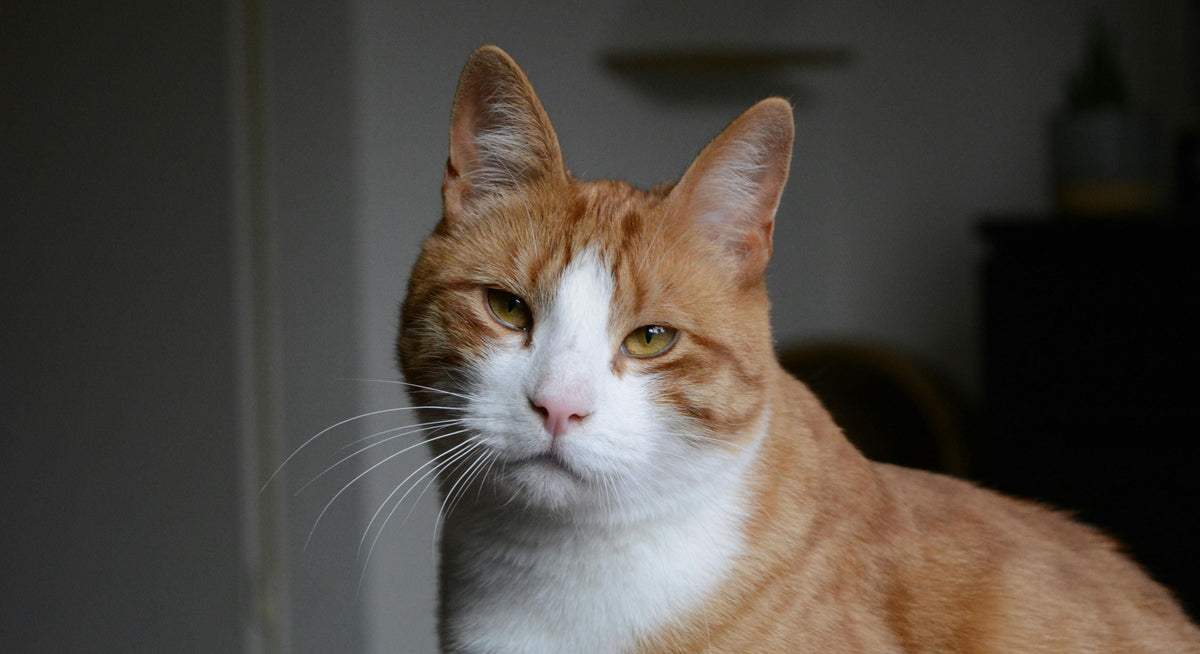
Do Cats Feel Sadness When They Lose a Companion? Understanding Feline Grief
|
|
Time to read 5 min
|
|
Time to read 5 min
Cats are known for their independent nature, but when a close companion passes away, do they feel sadness? Understanding the emotional side of cats can help us better support our furry friends during tough times. This article explores feline behavior after the loss of a companion and offers tips to help your cat cope with this major life change.
When a cat loses its companion, the change in their behavior might make you wonder: do cats really grieve? Recent studies and anecdotal evidence suggest that cats can exhibit signs of distress, confusion, and even loneliness. By learning more about how cats react to such loss, you can help your pet navigate this challenging period.
In this article, we’ll uncover the signs of grief in cats, share actionable tips to help them adjust, and explore the importance of emotional well-being for both you and your pet.
Cats react to loss in unique ways, and their behaviors may range from subtle changes to more noticeable signs. Here’s what to look for:
Loss of Appetite: Many grieving cats eat less or refuse food entirely.
Overeating: Some cats may eat more than usual as a coping mechanism.
Clinginess: Some cats seek extra affection and become more vocal in their need for attention.
Withdrawal: Others may isolate themselves, avoiding social interactions altogether.
Increased Sleep: A grieving cat may sleep more than usual, reflecting sadness or depression.
Restlessness: Others might experience disrupted sleep due to confusion or stress.
Physical Illness: Stress from grief can weaken a cat’s immune system, leading to illness.
Vomiting or Digestive Issues: These may be physical manifestations of emotional distress.
The intensity of a cat’s reaction depends on factors like:
Bond Strength: Cats with close relationships to their companion are more likely to display signs of grief.
Personality: Outgoing cats may exhibit more overt signs, while independent ones might seem unaffected.
Breed Differences: Studies suggest that breeds like Siamese and Oriental cats, which are more emotionally attached, show stronger grief reactions.
Supporting your grieving cat requires patience and understanding. Here are some practical steps you can take:
Cats thrive on routine. Keeping their daily schedule consistent helps provide a sense of stability during uncertain times.
Avoid immediately removing the belongings of the deceased cat. Familiar scents can provide comfort and help your cat gradually adjust to the absence.
Offer affection when your cat seeks it, but don’t overwhelm them. Let them dictate the pace of interaction.
Keep an eye on their eating habits, weight, and overall behavior. If symptoms like vomiting or extreme lethargy persist, consult a veterinarian.
If you’re considering adopting another pet, wait until your cat has adjusted. Introduce new companions gradually to ensure a smooth transition.
In the U.S., pets are often considered family members, and their loss deeply affects their owners. Interestingly, the emotional connection goes both ways. Cats can pick up on human emotions, and your sadness might amplify their stress. Maintaining a calm and supportive environment can positively influence their recovery.
In the United States, acknowledging pet grief has gained more recognition over the years. Resources such as grief counseling and support groups are available for pet owners dealing with loss. Organizations like the ASPCA and Humane Society also provide guidance on helping pets through transitions.
Additionally, more veterinarians now recognize the emotional health of pets, offering tailored advice for grieving animals. This holistic approach ensures that both pets and their owners are supported during difficult times.
Grieving is a natural process for cats, just as it is for humans. By recognizing the signs of grief and providing the right care, you can help your cat adjust to life without their companion. Remember, every cat copes differently, and patience is key to their recovery.
If you’ve recently lost a pet and are looking for additional resources or support, consider reaching out to local pet organizations or veterinarians. Both you and your cat deserve care and understanding as you navigate this emotional journey together.
Reference
[1] Top Tip: Helping your cat through the death of its friend
https://icatcare.org/top-tip-helping-your-cat-through-the-death-of-its-friend/
[2] Why We Need to Take Pet Loss Seriously
https://www.scientificamerican.com/article/why-we-need-to-take-pet-loss-seriously/
Recognizing signs of grief in cats is crucial. Common indicators include changes in appetite, increased lethargy, altered sleeping patterns, excessive vocalization, and withdrawal from social interactions. Observing these behaviors can help determine if your cat is mourning.
Supporting a grieving cat involves maintaining a consistent routine, providing extra affection and attention, ensuring they have a safe and comfortable space, and engaging them in interactive play to distract and uplift their mood.
Opinions vary on this matter. Some experts believe that allowing a cat to see and sniff their deceased companion can help them understand the loss, potentially reducing searching behavior. However, each cat's reaction is unique, and it's essential to consider their temperament.
The duration of grief in cats varies. Some may exhibit signs of mourning for a few weeks, while others could take several months to return to their usual behavior. Monitoring your cat's well-being during this period is essential, and consulting a veterinarian if concerns arise is recommended.
Introducing a new cat immediately after a loss isn't always beneficial. It's crucial to allow your grieving cat time to adjust to the absence first. Once they've stabilized, and if they seem receptive, a gradual introduction of a new companion can be considered. Patience and careful observation are key during this process.
Discover more trendy, high-quality cat supplies – click here to explore!

